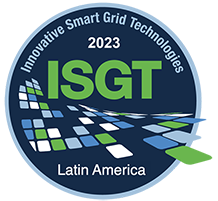TUTORIALS
Monday, Nov. 6, 2023 8:00-12:00
“Foundations and Applications of Microgrids for System Resilience”
- Alex Nassif, Omid Alizadeh, LUMA Energy
- Farid Katiraei, Amin Zamani, Quanta Technology
Driven by increasing severity and frequency of power system outages, microgrids have become attractive solutions for enhancing reliability and resilience of communities and customers. This course provides an impartial overview of applications, design considerations, and operation of various types of microgrids. The technologies, techniques, and industry best practices that support implementation, integration, and operation of microgrid systems will also be discussed in this course.
This course will provide:
- Introduction to distributed and renewable energy resources, with focus on energy storage
- DER and Microgrid standards, and interconnection guides
- Planning, studies and design of microgrids and energy storage systems
- Protection and control of microgrids with use of advanced technologies
- Use cases and business analysis for microgrids
- Commissioning and testing of microgrids
- Benchmark studies and examples of microgrids with hybrid topology and mix generation.
Monday, Nov. 6, 2023 13:00-16:30
“Quantifying the DER Hosting Capacity of Distribution Networks: Models, Considerations and Tools”
- Nando Ochoa, University of Melbourne, Australia
Distribution companies all over the world are finding it challenging to quantify the ability of their existing low and medium voltage networks to host residential Distributed Energy Resources (DER), such as photovoltaic (PV) systems and electric vehicles (EVs). This quantification, known as Hosting Capacity, is also needed to assess different potential solutions that could increase DER uptake. Thus, it is crucial for distribution companies to carry out adequate DER hosting capacity quantifications using appropriate models, considerations, and tools.
The first part of this tutorial will present and discuss different aspects required to quantify the residential DER hosting capacity of distribution networks, particularly focusing on solar PV and EVs. Using realistic case studies from urban and rural integrated MV-LV networks from Australia, this tutorial will explain and demonstrate the benefits but also the potential challenges and limitations of exploiting existing assets as well as the capabilities of DER.
The second part is hands-on. Attendees will have the opportunity to learn about the basics of realistic modelling and analysis of distribution networks with solar photovoltaics using advanced tools. Attendees will use the programming language Python and the advanced distribution network analysis tool OpenDSS, an open-source tool developed by the Electric Power Research Institute (EPRI) in the US. OpenDSS will be used entirely with Python code thanks to the dss_python module developed by researchers at the University of Campinas in Brazil. And, to guide you, all will be done using Jupyter Notebook.
Monday, Nov. 6, 2023 13:00-16:00
“Optimization Techniques and their application in Active Distribution Systems Planning and Operation”
- Mariana Resener, Simon Fraser University, Canada.
This tutorial will cover the fundamentals of optimization models, focusing primarily on power distribution systems. We will explore the models of both traditional devices and distributed energy resources, emphasizing their integration into various optimization problems, including operation planning and expansion planning. Additionally, we will discuss techniques for incorporating uncertainties stemming from distributed energy resources and loads into optimization models. This will enable participants to gain insights into managing and optimizing power systems in the presence of uncertain factors. Throughout the tutorial, we will emphasize real-world applications and case studies to reinforce the theoretical concepts. Moreover, there will be a hands-on activity to provide participants with practical experience in modelling and implementing optimization models.


